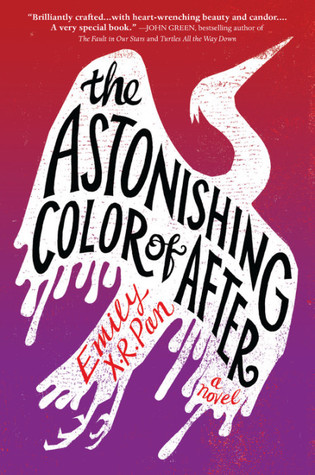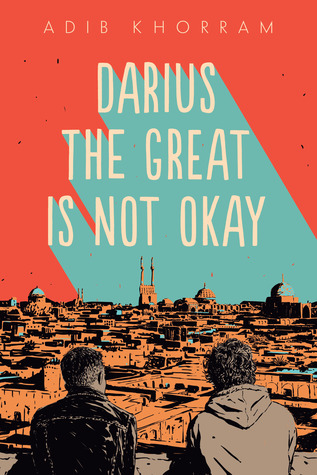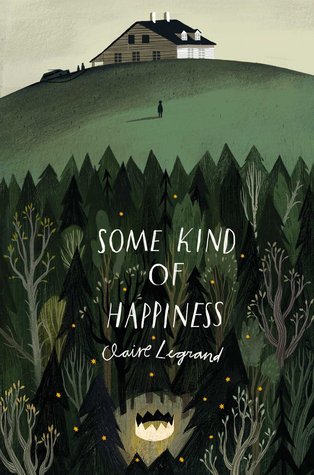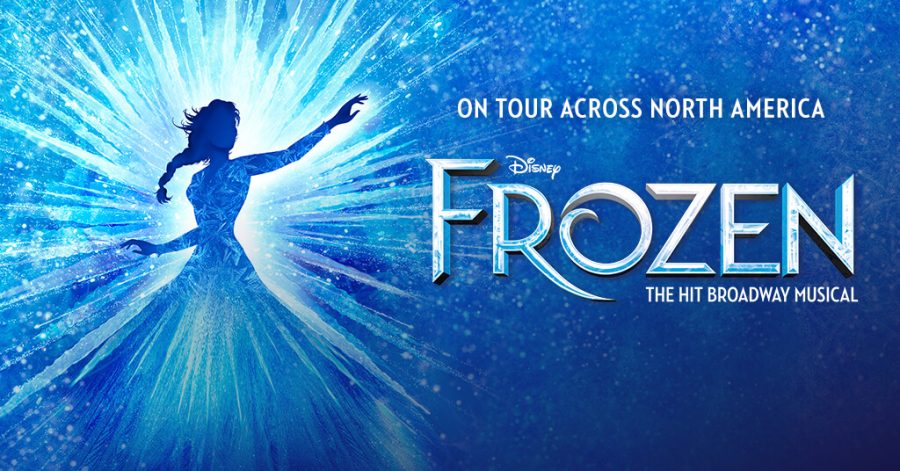In honor of September being Suicide Awareness and Prevention Month in the United States, I have compiled a list of book recommendations that pertain to suicide awareness. Mental health in many places is still viewed as something to be ashamed of, discouraging those who need help from reaching out for it. There’s also an immense amount of misconceptions when talking about poor mental health, people disregard the toll a mental illness can have. These books will assist in dissipating the inaccurate beliefs held by many in regards to mental health, while also highlighting the importance of not defining a person by their disability.
TW: Please note, all of these books will be talking about and/or referencing suicide from various perspectives. Check specific content warnings for books here, and remember to always take care of yourself first.
“The Astonishing Color of After” by Emily X. R. Pan
This book follows protagonist Leigh Chen Sanders, a half-asian and half-white teenager, as she travels to Taiwan for the first time after her mother’s death. She believes her mother has reincarnated into a bird, and is determined to find her despite the grief she’s carrying, or maybe in spite of it. Written in prose, this book tells both the story of a tragic loss, but also the sheer difficulty of explaining to others the pain your own mind is causing you.
“Some Kind of Happiness” by Claire Legrand
Everyone finds solace in different places. For 10-year-old Finley Hart, she relishes alone time in the Everwood: an imaginary forest she crafted in the pages of her notebook. Finley gets lost in these words during her “blue days,” periods of sadness that she can’t explain. It isn’t until Finley discovers the dense woods in her grandparent’s backyard, the stories in her notebook have come to life, and she is going to uncover all the secrets the forest holds. The accurate portrayal of how depression and anxiety can resonate in young kids is essential for helping countless feel less alone, delivered in a story comparable to “Bridge to Terabithia.” through its combination of fantasy and reality.
“Darius the Great Is Not Okay” by Adib Khorram

Darius Kellner has never felt truly connected to the Persian side of his family, a fact that became glaringly apparent to him during his first trip to Iran. His struggling social life at school seems to be reflected in his father’s disappointment in him at home, and he has yet to find a place he feels he fits in. Not until he has tea with his grandfather for the first time, and helps his grandmother cook and plays soccer with their neighbor, Sohrab. This book is first and foremost a story about the relationships we create and must nurture with family and friends. Darius’ struggle with depression doesn’t define who he is as a person, nor does his father’s struggle. Khorram defines these characters through their relationships with each other, and creates a beautiful space for any reader that has ever felt as alone as Darius.
















